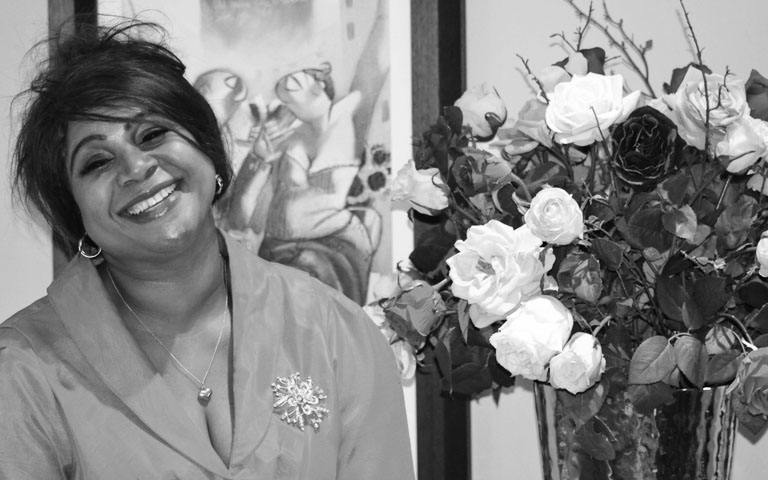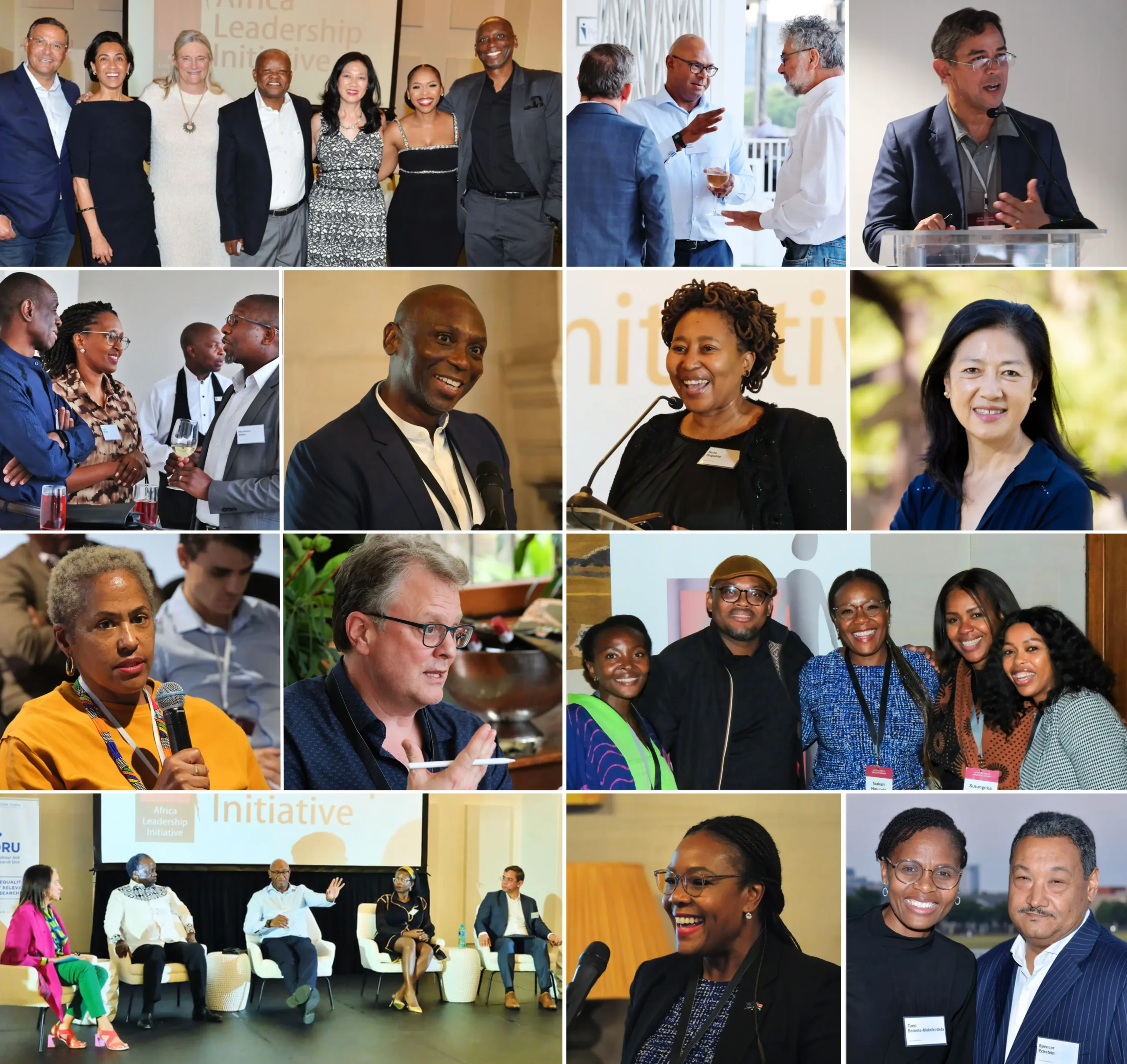
Founder of Power House Development Services (PDS) and African Leadership Initiative (ALI) Fellow Advocate Boniswa Mzimba, is creating a new reality for widows all over South Africa. Widowed 16 years ago and following years of ad hoc work in support of vulnerable women, she formalised this passion by establishing PDS in 2015, an organisation which provides widow wellness, widow empowerment and mediation services.
This registered nurse and a non-practising admitted Advocate of the High Court of South Africa, took her own grief and heartbreaking experience and formed PDS, which acts as a sustainable voice for the socio-economic development, rights and total wellbeing of widows.
Being a person in need too, some years ago, Mzimba understands how far empathy can go towards helping a widow get through very tough life circumstances. Mzimba lost her husband in 2002. He was a practicing attorney and just 31 years old when he died in a car accident just 1km away from their home. In in an instant, Mzimba’s life was shattered. She went from being happily married, to a widow and a single mother to their two sons (four and two years old) as well as previous orphans who they were taking care of.
People start deciding for you
“I was amazed at the fact that once you’ve lost your husband, society thinks you’ve also lost your mind and dignity too. People start deciding for you, and not in your best interests either,” she explains. Sadly, it’s not always strangers but family too that enforce unfair and unjust decisions on widows and Mzimba experienced this first hand after much abuse from her husband’s family, in particular her mother-in-law.
In light of this, PDS speaks to and actions services that are non-discriminatory. “There is a particular bias towards rural women due to traditional or customary marriages and cultural rights that are usually used to violate their constitutional rights, masquerading as acceptable practices,” Mzimba points out.
Mzimba has shared on a few occasions the sheer indignity widows, like herself, have faced, and many still do. Quite prevalent is the violation of human rights inflicted either by traditional societies or in-laws who often deny widows their inheritance and land rights. This is further compounded by being forced to evict their homes. Often the abuse and the ostracisation is unbearable, leaving these widows with more loss such as poverty.
Widowhood is a societal and developmental challenge and so the work of the PDS is quite comprehensive and far reaching. Whilst they do not litigate, Mzimba highlighted that they do recognise that legal access is expensive and often out of reach, especially for rural women.
“African women in rural areas face a particular difficulty when it comes to inheritance rights and security of tenure,” she says.
Naturally, Mzimba is concerned at how little information is out there to empower women who have been through loss. She found there was nothing in place to encourage widows that there can, in fact, be life after loss. She points out that legal assistance is very expensive and, in some cases, the justice system may not necessarily be available.
Mzimba also believes the justice system has little or no sympathy for widows. She explains: “Once you are widowed, it’s a heartbreaking experience. To add to that, people don’t know what to do or how to react. This is why I believe the people and faces behind support and justice services need to be better informed and be trained to show empathy to women who are grieving,” she urges.
This training, she further encourages, should also carry through to the workplace. “After the loss of my husband my workplace took care of me. However, there was one manager who just couldn’t understand why I was crying all the time. She just couldn’t provide the empathy and understanding I needed as a new widow,” Mzimba shares. She explains that it’s stumbling blocks like this which prove reform in the workplace, through programmes of sensitisation, is critical. “These programmes should teach people to consider the unique challenges faced by widows.”
Despite the challenges, are there at least some strides being made though? According to Mzimba, thankfully yes. International Widow’s Day on 23 June is a United Nations ratified day of action to address the “poverty and injustice faced by millions of widows and their dependents in many countries”.
Equally, PDS are doing their share in terms of awareness and support. They provide socio-economic support through counselling services, motivation and a widow-on-call SMS line.
One of many widows who has been able to heal emotionally through the support of PDS is Nomvuyo Ndevu, 68, who lost her husband a few years ago. Another widow, Sindisiwa Rumbu, 66, has also faced her share of strife in addition to her huge loss. She was accused of being responsible for her husband’s death in 2003 and her in-laws took over land claims her husband had received. Thankfully, PDS intervened, from a support stance, and helped Rumbu overcome the emotional bondage she suffered. She shared that PDS helped her to find peace.
Making a difference is non-negotiable
As an ALI Fellow, Mzimba understands that reaching out, helping communities and making a difference is non-negotiable. “As an ALI Fellow, I am part of a group of people who truly care enough to contribute towards a better and good society. As an ALI fellow and South African, it’s so important that we make a difference whenever and wherever it is needed. Wherever I am, I ensure that I always represent and live the ALI ideals,” she says with a determined smile.
Through the work that Mzimba does, she knows that her experience, no matter how painful, is the tool that allows her to make a difference and better lives on a daily basis. “Everyday I wake up eager to give hope, lift people, and transform our society. Equally, I want to see transformation in our thinking and the values that’s held in society.”
On a personal note, Mzimba has turned her pain into poetry where she has penned her innermost feelings of grief, loss and life. Below is one of a few poems that she would like to share with the ALI community.
POEM
CHOOSE TO RISE
Adv. B. A. Mzimba
I lost my husband,
And not my mind
I lost my husband,
And not my capacity
To take decisions
I lost my husband,
And not my dignity
And self-respect
I lost my husband,
And not my ability to choose
I lost my husband
And not my voice to speak for myself
I lost my husband
But I did not lose my life
I choose to rise
Rise for myself
Rise for my children
Rise for others
Rise, Yes, Rise to make a difference!







